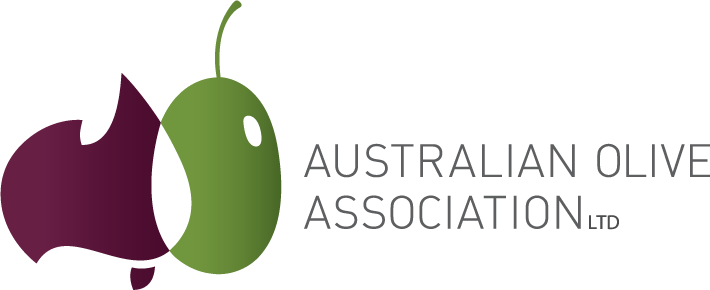Biosecurity in the spotlight, as national Xylella preparedness efforts continue

By Laura Thomas
The Australian Olive Association will join national agriculture sector representatives next month, as preparations against Australia’s number one pest threat continue.
The Xylella National Preparedness Workshop aims to identify the next steps in strengthening Australia’s preparedness against Xylella fastidiosa, by exposing gaps in the national action plan and exploring opportunities for research and development.
Xylella is Australia’s highest priority pest threat, due to its potential to cause significant disease to a wide variety of plants, including olive trees and other cropping species.
An outbreak on home soil would be impossible to eradicate and devastate the agricultural sector, leading to significant economic loss and environmental damage.
Australian authorities have remained on high alert following confirmation of fresh outbreaks in Italy and China earlier in this year. Emergency measures have been introduced to manage the risk of the bacteria entering Australia via imported host plants and some seed species and the Biosecurity Plan for the Olive Industry reviewed.
AOA Chief Executive Officer Michael Southan said Xylella represents the single most important biosecurity risk to the olive industry and wider agriculture sector.
And while the nation remains Xylella-free, ongoing biosecurity awareness and preparedness is crucial in ensuring it stays that way.
“The event will bring key members of Australia’s agriculture sector together to strategise and prepare for the worst-case scenario,” Mr Southan said.
“We will hear more about Xylella outbreaks affecting Europe, review the national action plan, carry out scenario planning, identify gaps in research and development and contribute to preparedness efforts.
“Outbreaks across Europe and more recently China have demonstrated to us that we can never afford to become complacent about biosecurity, especially when something as serious as Xylella is concerned.”
Driving home this very important message to all Australians is National Biosecurity Week, which begins on Monday.
The annual awareness campaign aims to educate Australians about the importance of strong biosecurity and its role in safeguarding our agriculture industry, food supply, environment, communities and economy.
It also delivers a critical message about the fundamental part we all play in its protection, according to Plant Health Australia Chief Executive Officer Sarah Corcoran.
“Biosecurity isn’t just for farmers and government. It’s something we all have a role in — at home, at work, and in our communities,” she said, via the Plant Health website.
“Too often, people think biosecurity means border control and people in hazmat suits. They assume it’s government’s job.”
Ms Corcoran said the campaign aimed to demystify biosecurity and reveal its role in protecting the things we all value – our natural environment, industries and way of life.
“This is a chance to reach more people, strengthen understanding and help build the biosecurity system we all rely on. Because when it comes to biosecurity, we’re only as strong as our weakest link,” she said.
Mr Southan said the campaign provided a timely reminder for olive growers to review their in-grove biosecurity practices.
“We all have a role to play in national biosecurity – whether at a national strategy level, or at home, in our own groves,” he said.
“It’s important to understand the particular risks for your grove and have a good biosecurity management plan in place.
“Things such as displaying biosecurity signage, thorough insect, weed and pest monitoring and good grove hygiene are relatively simple, but can make all the difference.
“We must all play out part in protecting not just our own farms, but the wider olive and agriculture industries.”
Biosecurity best practice checklist
- Manage biosecurity risks – prepare an on-farm biosecurity plan
- Plant disease resistant varieties and avoid planting in infected soils.
- Know your high priority biosecurity pests – induct your employees
- Monitor your grove – report anything unusual to the exotic pest hotline on 1800 084 881
- Implement good grove hygiene – keep it clean, removal or composting of pruning wood, disinfection of pruning tools
- Enforce visitor movement requirements – people and vehicles
- Use grove biosecurity signage (available to order via the AOA website)
- Provide vehicle and fruit bin wash down facilities – arrive clean / leave clean
More information
The Biosecurity Action Plan for Olive Growers provides tailored information for producers, while further management advice is also available via the AOA website.
Check out some simple ways you can help protect our plants, animals and Aussie way of life. Small actions can make a big difference!
Access free biosecurity education and training via the National Biosecurity Training Hub or visit the National Biosecurity Week website.
Mr Southan and the AOA’s Scientific Adviser in Sustainable Pest Management, Robert Spooner-Hart, will represent the AOA at the Xylella National Preparedness Workshop on 18 September 2025, hosted by the Department of Agriculture, Fisheries and Forestry, the Plant Biosecurity Research Initiative, Hort Innovation and Wine Australia.
An update will be published in a future edition of Friday Olive Extracts.
Sources:
https://australianolives.com.au/
https://www.farmbiosecurity.com.au/national-biosecurity-week/
https://www.agriculture.gov.au/
https://www.planthealthaustralia.com.au/
